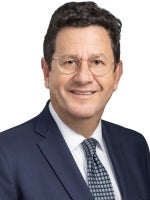On August 21, the US Court of Appeals for the Second Circuit decided two closely watched appeals regarding the intersection of Financial Industry Regulatory Authority, Inc. (FINRA) rules mandating arbitration of broker-dealer/customer disputes, and contractual forum selection clauses providing for a judicial forum. Goldman, Sachs & Co. v. Golden Empire Schools Financing Authority, et al., Nos. 13-797-cv; 13-2247-cv (2d Cir. Aug. 21, 2014). The Second Circuit's decision in Golden Empire provides important guidance for broker-dealers and institutional market participants in drafting, interpreting and applying forum selection clauses.
Background
Over the past few years, broker-dealers and institutional market participants have been engaged in an increasing number of procedural litigations to determine the governing forum for disputes arising in the course of their relationships. Traditionally, the choice between the courtroom and the arbitration forum had often been viewed as a close call, with each forum offering well-known advantages and countervailing disadvantages. Advocates for arbitration frequently cited perceived cost advantages, freedom from onerous discovery demands, more sophisticated fact finders and an absence of public scrutiny as factors favoring the arbitral forum. Litigation proponents, meanwhile, noted greater opportunities for appellate review, broader injunctive and judgment-enforcement rights, and greater adherence to precedent, evidentiary rules and substantive law as reasons to prefer judicial forums. Historically, these offsetting factors occasionally tilted demonstrably one way or another, but litigants often viewed the increased costs of litigating the governing forum as not worth the fight. In recent years, however, pro-claimant rule changes and perceived pro-claimant sentiment within the arbitration wings of many major self-regulatory organizations have arguably tilted the playing field, rendering arbitration a less hospitable forum for the defense, relative to the courtroom, than it was traditionally understood to be prior to the "Great Recession." These developments have led to a flurry of litigation over the governing forum for disputes between broker-dealers and institutional market participants, including the Second Circuit's recent decisions in Suntrust Banks, Inc. et al. v. Turnberry Capital Management, LP, 13-CV-2075 (2d Cir. May 15, 2014) (broker-dealer did not have customer relationship with hedge fund that purchased certificates elsewhere) andCitigroup Global Markets Inc. v. Abbar, 13-CV-2172 (2d Cir. Aug. 1, 2014) (denying mandatory FINRA arbitration to noncustomer and holding that a "customer" under FINRA Rule 12200 is one who, while not a broker or dealer, either purchases a good or service from a FINRA member or has an account with a FINRA member).
Factual Summary and Decision
Golden Empire decided the appeal of two district court decisions, Goldman, Sachs & Co. v. Golden Empire Sch. Fin. Auth., 922 F. Supp. 2d 435 (S.D.N.Y. 2013) and Citigroup Global Mkts. Inc. v. N.C. E. Mun. Power Agency, No. 13 CV 1703 (S.D.N.Y. May 10, 2013). In each case, a municipal authority sought to issue debt in the form of auction rate securities (ARS) and engaged investment banks (Goldman, Sachs & Co. and Citigroup, respectively) to underwrite the issuances. The banks and municipal authorities entered into agreements containing substantially identical forum selection clauses governing broker-dealer services provided as an ancillary part of the transaction. The clauses provided that "all actions and proceedings arising out of this Broker‐Dealer Agreement or any of the transactions contemplated hereby shall be brought in the United States District Court in the County of New York and that, in connection with any such action or proceeding, submit to the jurisdiction of, and venue in, such court." The ARS market sustained substantial liquidity disruptions during the financial crisis. ARS issuers, including the appellants in Golden Empire,commenced a series of FINRA arbitrations against the banks seeking compensation for alleged losses sustained during the market disruption. (These suits were separate and apart from litigations and arbitrations brought by ARS investors.) With regard to the issuer claims, the banks in Golden Empire argued that the forum selection clause excerpted above superseded FINRA Rule 12200, which provides for arbitration of customer disputes. The Second Circuit agreed, after reconciling two prior decisions in that circuit,Bank Julius Baer & Co. v. Waxfield Ltd., 424 F.3d 278, 284 (2d Cir. 2005) (holding forum selection clause did not supersede agreement to arbitrate) and Applied Energetics, Inc. v. NewOak Capital Mkts. LLC, 645 F.3d 522, 526 (2d Cir. 2011) (holding forum selection clause superseded FINRA Rule 12200). The court noted that while the forum selection clause in Bank Juliusonly provided that a customer "submits to the jurisdiction of any New York State or Federal Court" and that "any Action may be heard" in such court, the clause in Applied Energetics provided that "[a]ny dispute arising out of this Agreement shall be adjudicated in" New York. The clause in Bank Julius was also "not exclusive of any rights or remedies provided under any other agreement," while the one at issue in Applied Energetics provided that it "constitute[d] the entire understanding and agreement" of the parties. The court held that the forum selection language in the Golden Empire broker-dealer agreements was "indistinguishable" from that in Applied Energeticsbecause it was "all inclusive and mandatory," whereas the Bank Juliusclause "simply waived objection to jurisdiction in New York."
For their part, the municipal issuers argued that the agreements did not cover their entire relationships with the banks and that, in any event, the phrase "all actions and proceedings" did not include arbitrations. The court disposed of the first argument by pointing out that the forum selection clause provided for "all actions and proceedings arising out of . . . any of the transactions contemplated," and that this clause "plainly include[s]" the ARS issuances made. As to the second argument, the court interpreted the phrase "all actions and proceedings" based upon its "plain meaning as generally understood," and noted that "[a]rbitrations are regularly described as 'proceedings' by the United States Supreme Court, our Circuit, New York state courts, the C.P.L.R., and the FINRA Rules." Thus the Second Circuit held that the phrase "actions and proceedings" included arbitrations even though "arbitrations" were not specifically mentioned as such "actions or proceedings," despite a US Court of Appeals for the Fourth Circuit holding to the contrary. UBS Fin. Servs., Inc. v. Carilion Clinic, 706 F.3d 319 (4th Cir. 2013).
Practical Advice
The Second Circuit's decision in Golden Empire provides guidance for the drafting of an enforceable forum selection clause in a broker-dealer agreement:
-
Use "shall" and not "may." The Second Circuit distinguished an earlier case (Bank Julius), in which a (weaker) forum selection clause stated that the bank's customer "submits to the jurisdiction [of a Court]" and "agrees that any action may be heard [in such court]." The Second Circuit noted that such language did not "specifically preclude" arbitration.
-
Use a merger clause, such as "this constitutes the entire agreement between the parties related to the subject matter hereof."
-
Do not use language such as: "This agreement is not exclusive of any rights and remedies provided by any other agreement." That language was used in Bank Julius to sustain a prior agreement to arbitrate.
-
While the Second Circuit does not require a specific preclusive reference to arbitration in the forum selection clause ("and precludes arbitration of such claims"), such a reference does not hurt, and could help in other circuits. In any event, make sure that the language conforms to Points 1-3 above.
-
There is no presumption of arbitrability in disputes over whether an agreement to arbitrate has been made. The Second Circuit had previously said as much in Applied Energetics, but some lower courts continue to miss that point.
-
The Second Circuit held that arbitrations are "actions and proceedings." The court explicitly disagreed with the Carilion case from the Fourth Circuit on this point.




 />i
/>i
